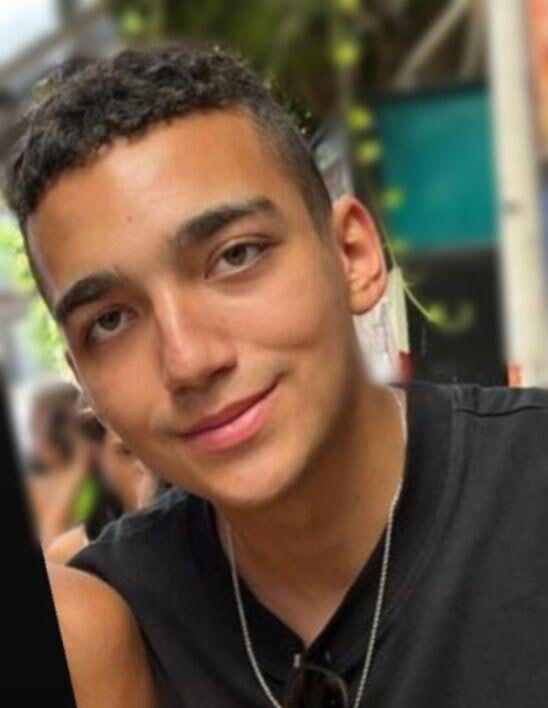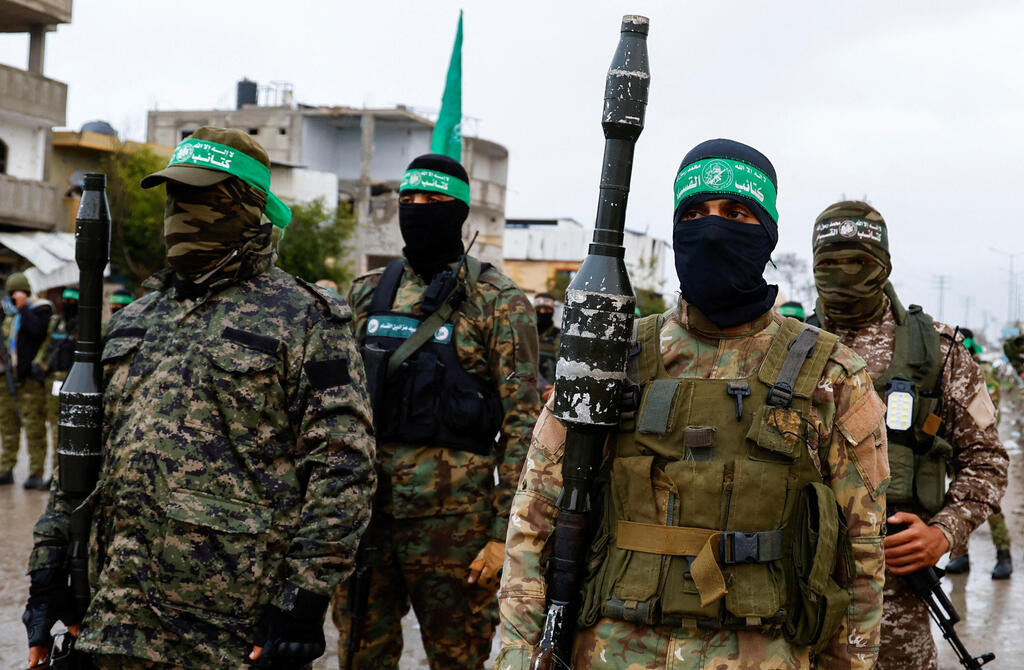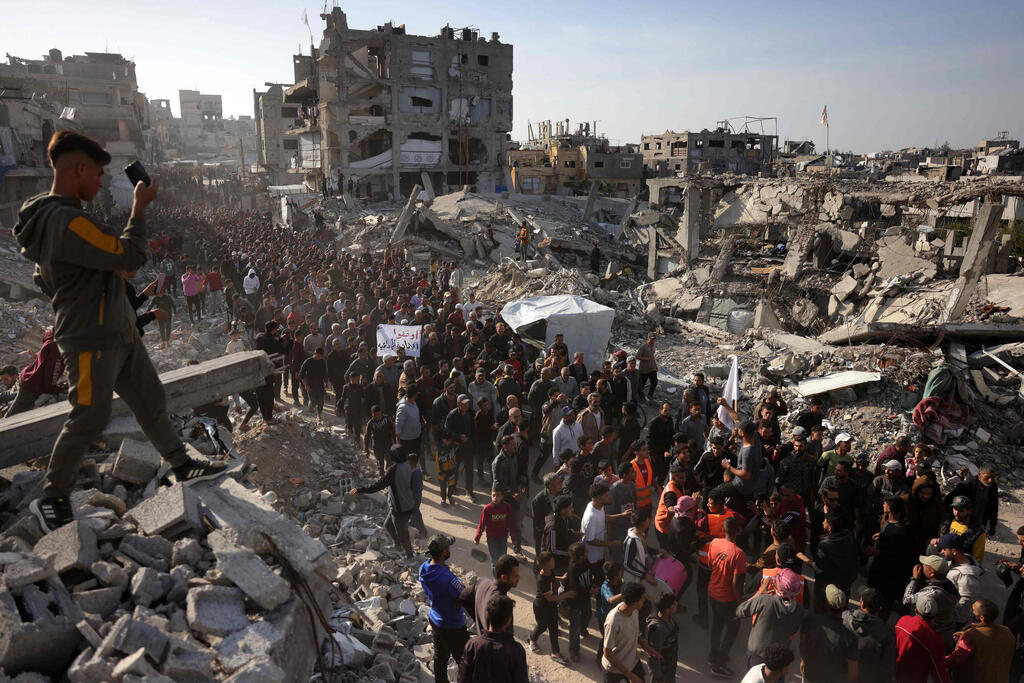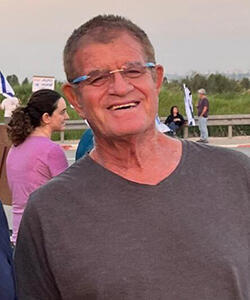Getting your Trinity Audio player ready...
Hamas has provided medical information on American-Israeli hostage Edan Alexander to mediators and indicated willingness to release him along with four other hostages—both living and deceased—as part of a proposed ceasefire deal, according to Arab media reports on Saturday citing Egyptian sources.
The reported offer, which surfaced ahead of the Eid al-Fitr holiday, includes a potential 50-day pause in fighting. However, Israeli officials insist any deal must include the release of at least 10 of the 24 hostages believed to still be alive, in line with a framework proposed by U.S. envoy Steve Witkoff.
While Hamas is reportedly pressing for long-term negotiations to end the war, Israel maintains that any current agreement must focus solely on a temporary ceasefire in exchange for hostages.
Prime Minister Benjamin Netanyahu’s office confirmed Saturday that Israel had submitted a counterproposal, coordinated with the United States, in response to a plan received from mediators Egypt and Qatar. The matter was discussed in the latest Security Cabinet meeting.
Hamas official Khalil al-Hayya confirmed the terrorist group had accepted a proposal earlier in the week and accused Israel of jeopardizing the deal. He also reiterated Hamas’ refusal to disarm under any future agreement, calling its arsenal a “red line.”
Negotiators are working to reach an agreement by the Jewish holiday of Passover in two weeks, after efforts to secure a deal before Eid were ruled out by sources familiar with the talks. The current round of negotiations marks the first serious push since the collapse of the ceasefire more than a week ago and follows five weeks without a hostage release.
5 View gallery


Steve Witkoff, Benjamin Netanyahu and Khalil al-Hayya
(Photo: Yariv Katz, REUTERS/Evelyn Hockstein)
Meanwhile, the IDF has expanded its ground operations in Gaza, amid growing pressure from hostage families and rare anti-Hamas protests within the Palestinian enclave. As part of the proposed deal, Hamas is also reportedly willing to release the remains of some of the 35 hostages believed to have died in captivity.
Reports also emerged Saturday that Hamas recently rejected a U.S.-backed proposal offering senior military commanders safe passage abroad, financial incentives and protection from harm in exchange for laying down arms.
According to The New Arab, the offer included nearly $2 billion in compensation, varying by rank, for leaders such as Mohammad Sinwar (brother of slain Hamas leader Yahya Sinwar), Rafah commander Mohammed Shabana and Gaza City commander Az al-Din al-Haddad.
While the identity of the funders was not disclosed, the report cited signs pointing to regional actors. The offer was reportedly intended to pave the way for Hamas’ demilitarization—an outcome Israel views as critical to ending the war.
Netanyahu, facing internal political pressure, has reiterated that no deal will be accepted without achieving all of Israel’s war objectives: the release of all hostages, Hamas’ full disarmament and the removal of its leadership from Gaza.
While Hamas has reportedly shown openness to a post-war governance structure that excludes its officials in name, it continues to reject any scenario requiring it to give up military control—described by analysts as a “Hezbollah model.”
Meanwhile, Unrest is growing inside Gaza as Israeli military pressure intensifies and residents face nearly a month without new humanitarian aid. On Saturday evening, the IDF announced it had expanded its ground operations in the southern Gaza Strip, launching activity in Rafah’s al-Janina neighborhood “to broaden the security buffer in the area.”
According to the military, forces destroyed Hamas terror infrastructure, while the Israeli Air Force conducted dozens of strikes over the weekend, targeting weapons depots, rocket launchers and additional terrorist sites.
IDF strikes on Hamas targets across Gaza
(Video: IDF)
Following a mortar attack on Israeli forces in central Gaza, the IDF issued evacuation warnings to residents in eastern Khan Younis. Israeli officials have warned they may expand territorial control unless Hamas agrees to release more hostages.
The return to fighting, combined with the worsening humanitarian crisis, has fueled rare public unrest inside the enclave. For the first time in years—and notably since the war began—hundreds of Gazans took to the streets this week in multiple locations, chanting “Hamas out” in protests against the group’s rule.
According to a Wall Street Journal report, Hamas is struggling to maintain discipline within its ranks. In a sign of its weakened grip, the group did not violently suppress the demonstrations, instead downplaying the protests as benefiting Israel—a line echoed by Hamas leaders citing Defense Minister Israel Katz's encouragement of Gazan protests.
Hayya, who heads the group’s Gaza leadership but currently resides abroad, addressed the situation in a statement. “We are aware of the suffering in our beloved Gaza, of the siege, starvation and denial of water, food and medicine, in addition to the killings, assassinations and chaos,” he said. “Yet the resilience of our people remains as solid as rock. Their awareness and understanding will help them resist the occupation and its deceptions, including its suppression and terror.”
Meanwhile, as on many Saturday nights since the October 7 attacks, thousands across Israel took to the streets demanding the release of the hostages. Bar Godard, daughter of slain hostage Meny Godard, addressed a rally in Tel Aviv’s Hostage Square, revealing that an IDF operation to recover her father’s body had failed.
On Monday afternoon, rumors started spreading—reports on Telegram about bodies being recovered,” she said. “Soon after, I saw his photo under the headline: ‘The body of Meny Godard recovered.’ I started shaking. That evening, our liaison officer called and said he was on his way. I thought maybe he would say my dad is alive. But the moment he opened the door, I understood—Dad isn’t coming back.”
She said the officer described the mission to extract Godard’s body, which included retrieving remains from a refrigerator in a Palestinian Islamic Jihad (PIJ) outpost. Despite the bravery of the soldiers involved, the mission was ultimately unsuccessful.
Addressing both Prime Minister Benjamin Netanyahu and IDF Chief of Staff Lt. Gen. Eyal Zamir, Godard issued a firm request on behalf of her family: “Do not send any more soldiers into harm’s way to retrieve my father’s body. No more families should be added to the circle of grief. We demand his return, along with all the hostages, through a negotiated deal.”
She concluded with a powerful call to action: “Bring the living hostages home now. Give the dead a proper burial. [Netanyahu], take responsibility like that officer—and secure a deal that will unite and strengthen the nation.”
Get the Ynetnews app on your smartphone: Google Play: https://bit.ly/4eJ37pE | Apple App Store: https://bit.ly/3ZL7iNv
Hamas, meanwhile, continued its psychological warfare tactics, releasing a second video within a week of hostage Elkana Bohbot. The disturbing clip, approved for publication by his family, shows Bohbot weeping and pleading for help.
"I am the one who asked to record the video. Hamas did not tell me to record the video," he says. "This is not psychological warfare. The real psychological war is me waking up without seeing my son, without my wife. It’s tearing me apart. You don’t understand. I want to get out of here!"
Second Hamas propaganda video featuring hostage Elkana Bohbot
Fighting back tears, he adds, “Why is my wife alone? Why can’t my son say ‘Dad’? His birthday is coming. Why? Please get us out of here."
He continues his plea, questioning why his rights as a longtime worker are being ignored. “I have been working for this country for 15 years. I am a contractor, please check that yourselves. Please. No one has been in our situation—we are under bombardment 24 hours a day, every day. And now we’re told there might be a rescue attempt by force? That would kill us. I’m afraid I’ll die here at any moment.”








